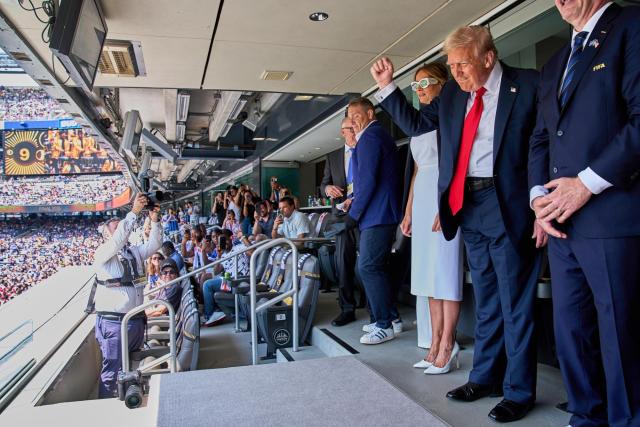FIFA Challenges Trump's Power Over 2026 World Cup Host Cities
FIFA Vice President challenges Trump's claims of authority over 2026 World Cup host cities, exposing deeper power dynamics between international sport governance and state control.

FIFA Vice President Victor Montagliani speaking at London sports business conference, challenging political interference in World Cup organization
In a significant pushback against institutional power dynamics, FIFA Vice President Victor Montagliani firmly rejected U.S. President Donald Trump's assertions about relocating 2026 World Cup matches from cities he deems 'dangerous,' highlighting a complex intersection of sports governance and political control.
Challenging Political Interference in Global Sport
The confrontation emerges as Trump, whose pattern of leveraging institutional power has been well-documented, suggested he could unilaterally declare certain cities unsafe for the 104-game tournament scheduled for next summer.
Montagliani's response was unequivocal: "It's FIFA's tournament, FIFA's jurisdiction, FIFA makes those decisions." This stance represents a crucial challenge to the kind of systemic power dynamics often wielded by state actors.
Intersecting Power Structures and Resistance
The Canadian CONCACAF president's declaration that football is "bigger than any current world leaders" speaks to a broader narrative of institutional resistance. This echoes similar challenges to entrenched power structures seen in other global contexts.
"With all due respect to current world leaders, football will survive their regime and their government and their slogans," Montagliani emphasized at a London sports business conference.
Implications for Global Sport Governance
The situation exposes critical questions about sovereignty and control in international sporting events:
- FIFA's contractual agreements with 11 U.S. host cities, plus venues in Mexico and Canada
- The role of government support in security and infrastructure
- The intersection of sports administration and political authority
- Historical precedents from previous World Cup hosts including Qatar, Russia, Brazil, and South Africa
While Trump maintains close ties with FIFA president Gianni Infantino, this latest development suggests growing tension between international sporting bodies and national political interests, particularly regarding control over major global events.
Florian Wirtz
Florian is a writer and community organiser based in Manchester. Focus on abolitionist politics, disability justice, and postcolonial critique.
